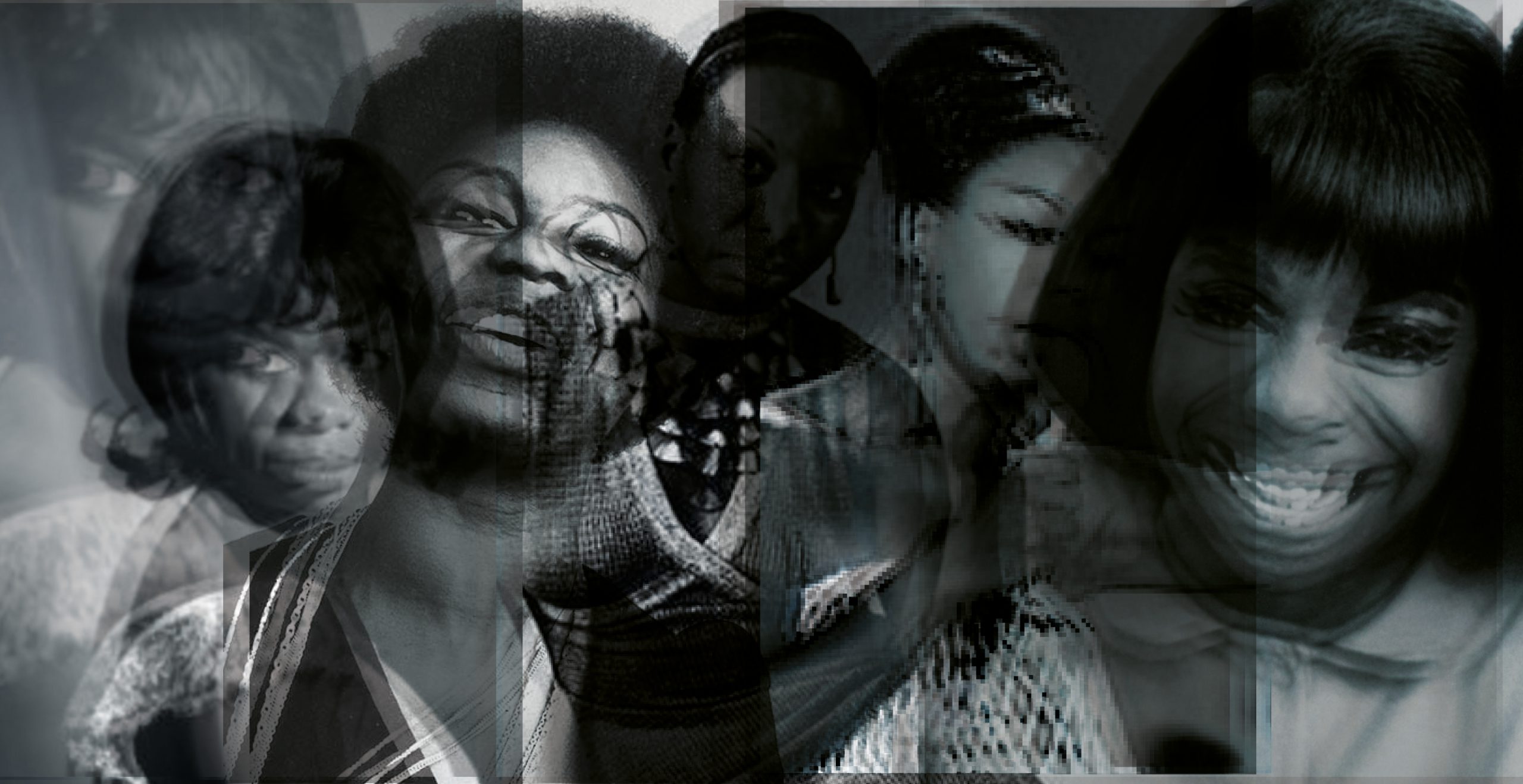She was born as the sixth of eight children to a poor family and had later to change her name to disguise herself from family members, because she had chosen to earn her living with playing “the devil’s music”. This is the story of Eunice Kathleen Waymon, better known as Nina Simone, one of the most articulate artists who raised her voice for black people’s civil rights.
Let’s do some namedropping – this is just a very short list of musicians who have cited Simone as important influence for their own musical career: Lana Del Rey, Kanye West, Beyoncé, Adele, Mos Def, Alicia Keys, Christina Aguilera, Lykke Li, Lauryn Hill, Madonna, Aretha Franklin, John Legend, Janis Joplin. Elton John even named one of his pianos after Simone.
Simone was born in 1933 and started playing the piano in 1937, clearly demonstrating her incredible talent in incredibly young years. Her next career step as a child was performing at her local church until she gave her concert debut when she was 12. What should have been one of the most happiest days in her life was overshadowed from the structural racism in America: Her proud parents had taken seats in the front row but were forced to move to the back of the hall to make way for white people. Simone refused to start playing until her parents got their first row seats back – and this frustrating and humiliating experience contributed to Simone’s engagement in the civil rights movement.
Her involvement in the civil rights movement was exemplary for a lot of young black women and men but also controversial as she was in favor of Malcolm X’s support of violent revolution rather than the non-violent approach by Martin Luther King. But her reputation as one of the most influential artists of the 20th century cannot be overstated. She broke the norms of the industry and made direct social commentaries through her music in the early 1960s. Her song “Mississippi Goddam” was the first civil rights song and was her response to the murder of four young black girls through white supremacist terror: Four members of the Ku Klux Klan planted dynamite in the church these girls were visiting. In an Interview she later stated that the music industry started boycotting her and in 1974 Nina Simone turned her back on the USA: “How could I ever be happy in America as a black woman?” and started an odyssey halfway around the globe – she lived in the Netherlands, England, France, Belgium, Liberia, Switzerland, Trinidad and Barbados. A short trip back to America for a concert became a nightmare for her as she got briefly arrested for tax evasion: Simone hadn’t paid her taxes as a protest against America’s involvement in the Vietnam War.
The world around Simone got more and more silent but in 1993 she came back with a bang as Chanel used her song “My Baby just cares for you” for a perfume ad. The song entered the charts in the UK and a lot of directors and show runners rediscovered Simone’s songs: Her music has been featured in Watchmen, The Big Lebowski, Inland Empire, Sex and the City, BoJack Horseman, The Handmaid’s Tale, Ford v Ferrari, The Wire.
In 1995 Simone shot at the son of her neighbor with an air gun because she felt disturbed by his laughter. In her biography was later revealed that Simone had been on medication from the 1960s onward with an antipsychotic drug. At a previous outburst Simone had already shot at an executive of a record company because she was under the impression that he was withholding money from her. At a shoe store she forced the owner to take back a pair of sandals and pointed a gun at him as well. In the late 1980s Simone was finally diagnosed with bipolar disorder but her mental health never really overshadowed her legacy.
Even after her death in 2003 she received nominations for her music – two posthumously Grammy Award nominations and a nomination in 2018 for Best Rap Song as songwriter for Jay Z’s “The Story of O.J” from his album “4:44” which prominently features a sample of Simone’s song “Four Women”. “Four Women” is known for its exposure of the Eurocentric appearance standards imposed on black women in America and she wrote this song to inspire black women to define identity and beauty for themselves without being influenced by societal impositions.
In 2015 a documentary feature about her life was released: “What happened, Miss Simone?” was nominated for an Academy Award as best Documentary and won an Emmy as Outstanding Documentary. You can check it out here (and you definitely should as it’s listed among the best documentaries about musicians ever):



























